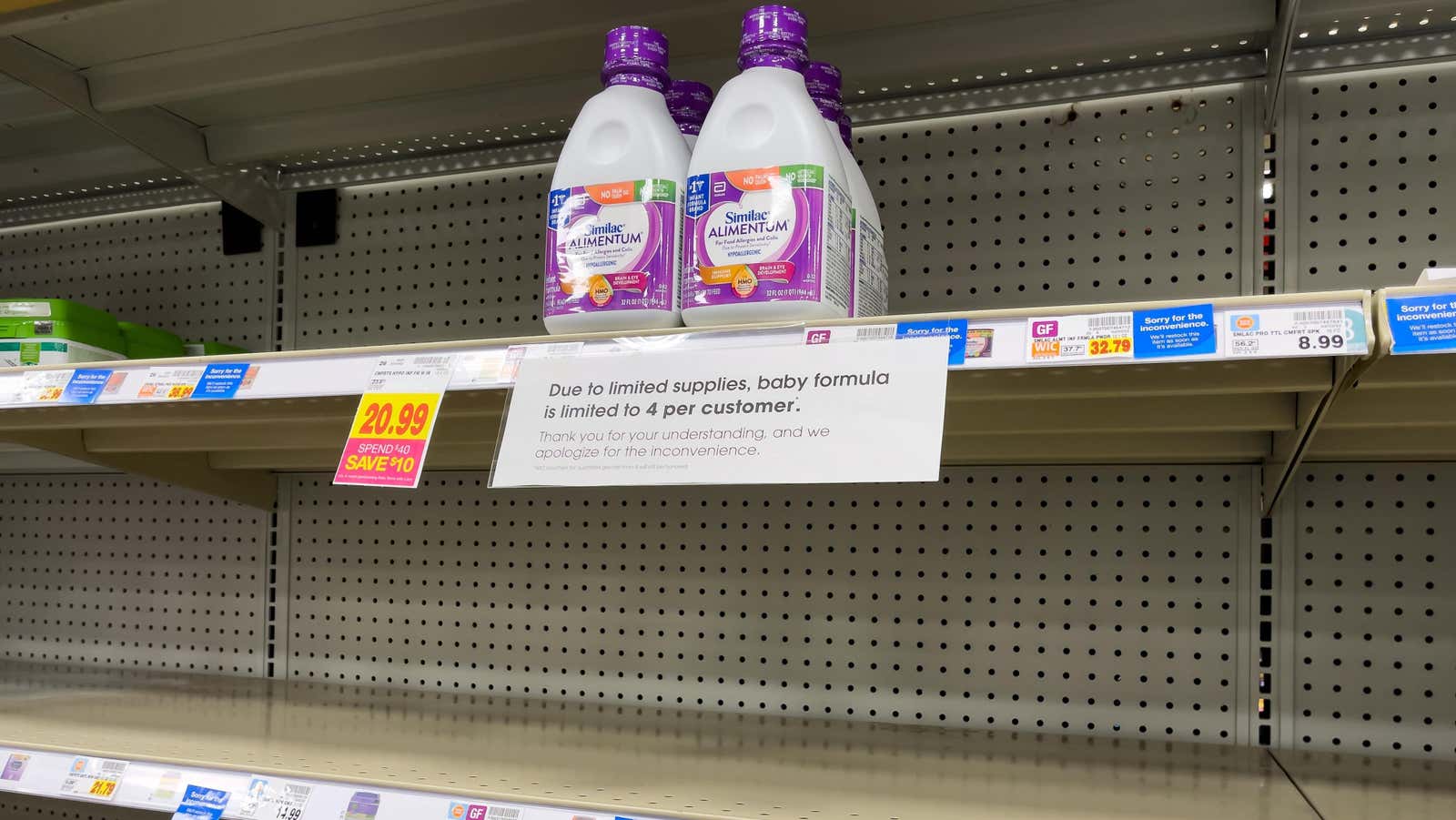Why Can’t You Just Order Infant Formula From Canada

With infant formula still in short supply, parents of babies are looking for creative ways to get their hands on this precious Enfamil, but the simple, seemingly ingenious solution that’s now going viral won’t work as described. The offer, which is circulating on Facebook and Twitter, advises parents to go to Amazon and change their account country from the US to Canada.
It is claimed that if you do this, you will be rewarded with all sorts of infant formula buying options because there is no major formula shortage in Canada. However, the problem comes when you want to actually get the formula (or whatever) from Amazon Canada. The company only ships within Canada, so if you don’t have a friend in Manitoba, this won’t work.
Amazon’s shipping restrictions page says :
Certain restrictions prevent us from shipping certain products to all geographic locations. Restrictions for certain items may require the buyer to provide additional information in order to ship the item.
You can find a third party formula supplier on Amazon, but this is expensive in terms of shipping costs and may be illegal, depending on the type of formula being imported.
The role of the FDA in all this
The bigger issue of why the US as a nation doesn’t import more infant formula is more complex than Amazon’s rules. Only about 2% of the US formula comes from foreign sources. The February recall by major manufacturer Abbott disrupted our fragile national infant formula supply chain, and fixing the problem comes with a number of major challenges.
If it were some other product, maybe more could be imported quickly, but we take special care of our infant formula. Formula must meet FDA nutritional standards and other requirements to be sold here . While European formula brands generally meet or even exceed FDA nutritional requirements (so much so that there is a black market for foreign formula ), packaging and other aspects of products are a different story.
FDA recall and approval is only part of the story, the rest is economics.
Tariffs and milk protection
To protect the US dairy industry and US infant formula manufacturers, the infant formula import tariff is set at 17.5% for most types of infant formula. The recently revised NAFTA agreement has effectively increased the cost of Canadian blend imports, discouraging anyone from building a new plant there and making it costly to import any surplus from Canadian plants.
Light at the end of the tunnel?
While there is no way to quickly change tariffs, the government is taking other steps to try to end the crisis. This week, the FDA announced plans to reduce the shortage by relaxing some of its rules (but not those related to nutritional requirements), and Abbot today announced that its facility should be back to work with new safety standards in a couple of weeks.